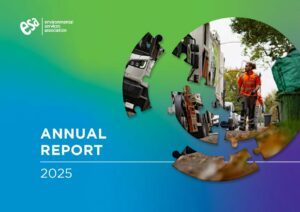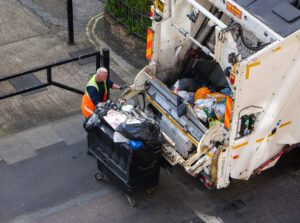ESA supports the Government’s proposal to extend carbon pricing to Energy from Waste by 2028
The UK Government has today published its response to a Call for Evidence over Developing the UK’s Emissions Trading Scheme (ETS), which includes expansion of the ETS to cover Energy-from-Waste.
In its response, Government announced that it is minded to include all waste incineration technologies within the ETS from 2028, with a two-year phase-in period from 2026. Much of the implementation detail will be subject to further consultation later this year. The full response can be accessed here.
The expansion of the UK Emission Trading Scheme to Energy from Waste represents the most significant regulatory intervention to the UK waste industry in a generation. It will fundamentally change the economics of the sector, and impact all stakeholders across the value chain, including local government, waste producers and the general public.
Following the announcement, the ESA supports the Government’s proposal to extend carbon pricing to Energy from Waste by 2028. We believe that this is a practical timeline that could provide the industry and local authorities sufficient lead-in time, provided other complementary decarbonisation and waste reduction policies are also implemented by Government – reducing the already significant burden on waste producers.
Any implementation by 2028 must align with supporting policies. These must include the immediate implementation of key packaging and recycling reforms as well as increasing the minimum recycled content threshold for the plastic tax to fifty per cent, which will help to reduce plastic content in the residual waste stream. Additionally, this must work alongside policy to nearly eliminate biogenic waste to landfill as well as the development of other regulatory drivers to minimise exports and waste crime.
ESA looks forward to working with the Department for Energy Security and Net Zero & other government departments to ensure the detailed regulations needed for inclusion in the Emissions Trading Scheme – such as transition arrangements, allowances, monitoring reporting and verification, and financial aspects of cost pass-through to waste producers and local authorities – are fair, transparent, and practical.
The ESA is committed to continuing to work closely with Government, and stakeholders across the value chain, to ensure this policy can be implemented effectively and that it successfully minimises waste, increases recycling, and reduces emissions.




